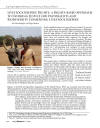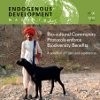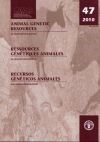Livestock Keepers’ Rights: A rights-based approach to invoking justice for pastoralists and biodiversity conserving livestock keepers
Adapted livestock breeds enable their keepers to take advantage of common property resources. They are an important resource for maintaining food security in remote areas and in the adaptation to climate change. To ensure their long-term survival, the livestock keepers who have bred and nurtured these breeds need a bundle of rights that enable them to continue keeping these breeds and make a living from them. Players in livestock development should support the struggle of the livestock keepers for recognition during the negotiations at various international forums. This article summarizes the three principles and five rights that make up Livestock Keepers’ Rights.

Download document


